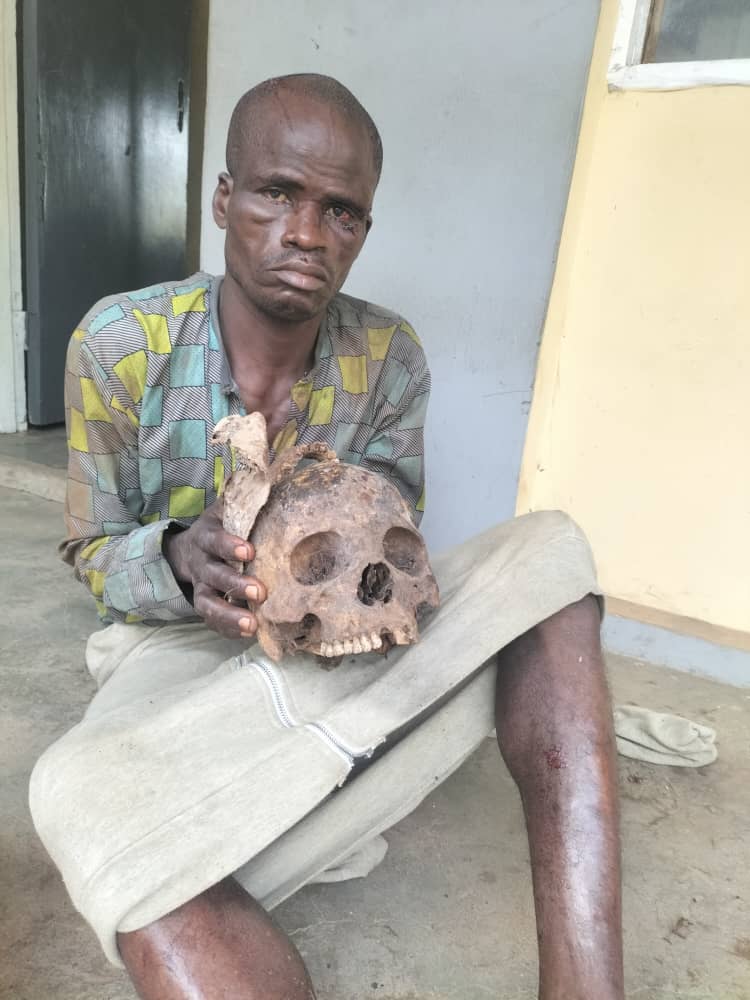
EX-CONVICT ARRESTED WITH HUMAN SKULL IN OGUN BURIAL GROUND

The Ogun State Community, Social Orientation, and Safety Corps, also known as So-Safe Corps, has arrested 54-year-old Adelani Oriyomi at a burial site in Kere, Obada-Oko, Abeokuta, Ogun State, while he was allegedly attempting to exhume a human skull.
This was revealed in a press statement issued on Tuesday by the Commander of So-Safe Corps, Soji Ganzallo, through the office of the Corps’ Director of Information and Public Relations, Assistant Commander Moruf Yusuf.
Ganzallo said, “At about 2:35 a.m. on January 21, 2025, officers of the So-Safe Corps on routine patrol observed suspicious activity on a parcel of land behind a church.
“The suspect, identified as 54-year-old Adelani Oriyomi, was spotted trying to hide.
“Once the coast seemed clear, he resumed digging the tomb to allegedly retrieve a human skull. However, the officers returned to the scene, apprehending him before he could escape.”
The statement revealed that the suspect, a resident of Kere, Obada-Oko in Ewekoro Local Government Area, confessed to the crime during interrogation.
He was said to have admitted that on January 18, 2025, he had exhumed a skull from a tomb on a plot of land behind his residence.
Oriyomi reportedly admitted that he was attempting to exhume another skull to meet the required number for a money ritual called ‘Osole’ when he was apprehended.
The suspect also confessed to being a repeat offender, having sold nearly ten skulls in the past.
During interrogation, Oriyomi explained that he had been previously arrested for similar crimes in Ado-Odo, serving two years in prison, and later spent six years and nine months at the Oba Correctional Centre after another conviction in Obada-Oko.
Ganzallo confirmed that the suspect, along with the recovered human skull, has been handed over to the Nigeria Police Force, Obada Divisional Headquarters, for further investigation and possible prosecution.
The So-Safe Corps Commander urged community leaders to carefully screen tenants and visitors to prevent the harboring of undesirable individuals, stressing that such vigilance could account for 70% of home security, with the remaining 30% relying on awareness of external threats.
![]()
